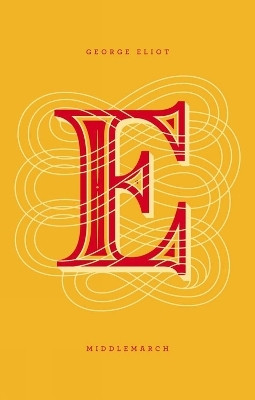Middlemarch(English, Hardcover, Eliot George)
Quick Overview
Product Price Comparison
From A to Z, the Penguin Drop Caps series collects 26 unique hardcoversŌĆöfeaturing cover art by type superstar Jessica Hische It all begins with a letter. Fall in love with Penguin Drop Caps, a new series of twenty-six collectible and gift-worthy hardcover editions, each with a type cover showcasing a gorgeously illustrated letter of the alphabet by superstar type designer Jessica Hische, whose work has appeared everywhere from Tiffany & Co. to Wes Anderson's film Moonrise Kingdom to Penguin's own bestsellers Committed and Rules of Civility. A collaboration between Jessica Hische and Penguin Art Director Paul Buckley, the series design encompasses foil-stamped paper-over-board cases in a rainbow-hued spectrum across all twenty-six book spines and a decorative stain on all three paper edges. Penguin Drop Caps debuts with an ŌĆ£AŌĆØ for Jane AustenŌĆÖs Pride and Prejudice, a ŌĆ£BŌĆØ for Charlotte Bront├½ŌĆÖs Jane Eyre, and a ŌĆ£CŌĆØ for Willa CatherŌĆÖs My ├üntonia, and continues with more classics from Penguin. E is for Eliot. Considered one the masterpieces of realist fiction, George EliotŌĆÖs novel, Middlemarch: A Study of Provincial Life, explores a fictional nineteenth-century Midlands town in the midst of modern changes. The proposed Reform Bill promises political change; the building of railroads alters both the physical and cultural landscape; new scientific approaches to medicine incite public division; and scandal lurks behind respectability. The quiet drama of ordinary lives and flawed choices are played out in the complexly portrayed central characters of the novelŌĆöthe idealistic Dorothea Brooke; the ambitious Dr. Lydgate; the spendthrift Fred Vincy; and the steadfast Mary Garth. The appearance of two outsiders further disrupts the townŌĆÖs equilibriumŌĆöWill Ladislaw, the spirited nephew of DorotheaŌĆÖs husband, the Rev. Edward Casaubon, and the sinister John Raffles, who threatens to expose the hidden past of one of the townŌĆÖs elite. Middlemarch displays George EliotŌĆÖs clear-eyed yet humane understanding of characters caught up in the mysterious unfolding of self-knowledge.┬Ā


